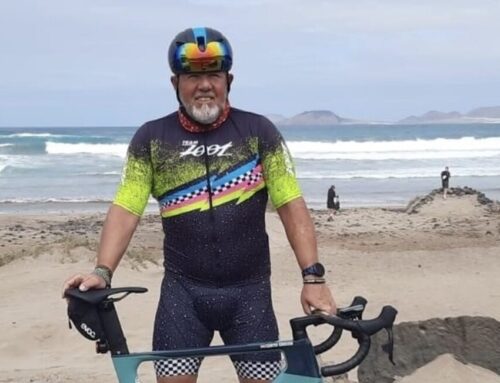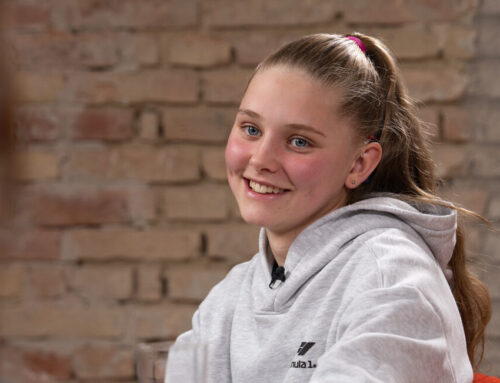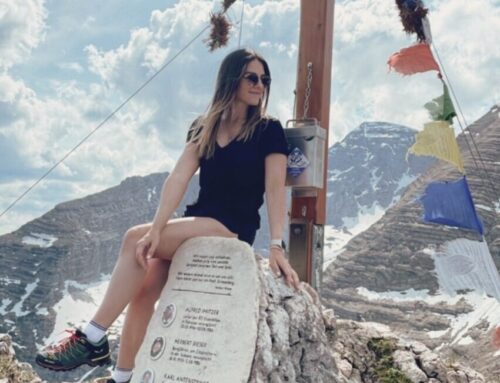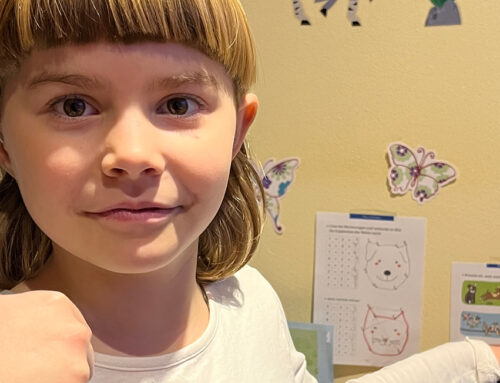An interview with Martin Ďuriška, a CI user from Slovakia
Martin Ďuriška describes the day of his cochlear implantation as his second birthday. It was the beginning of an independent and self-determined life that he lives today thanks to his CI, school and the energetic, persistent support from his parents.
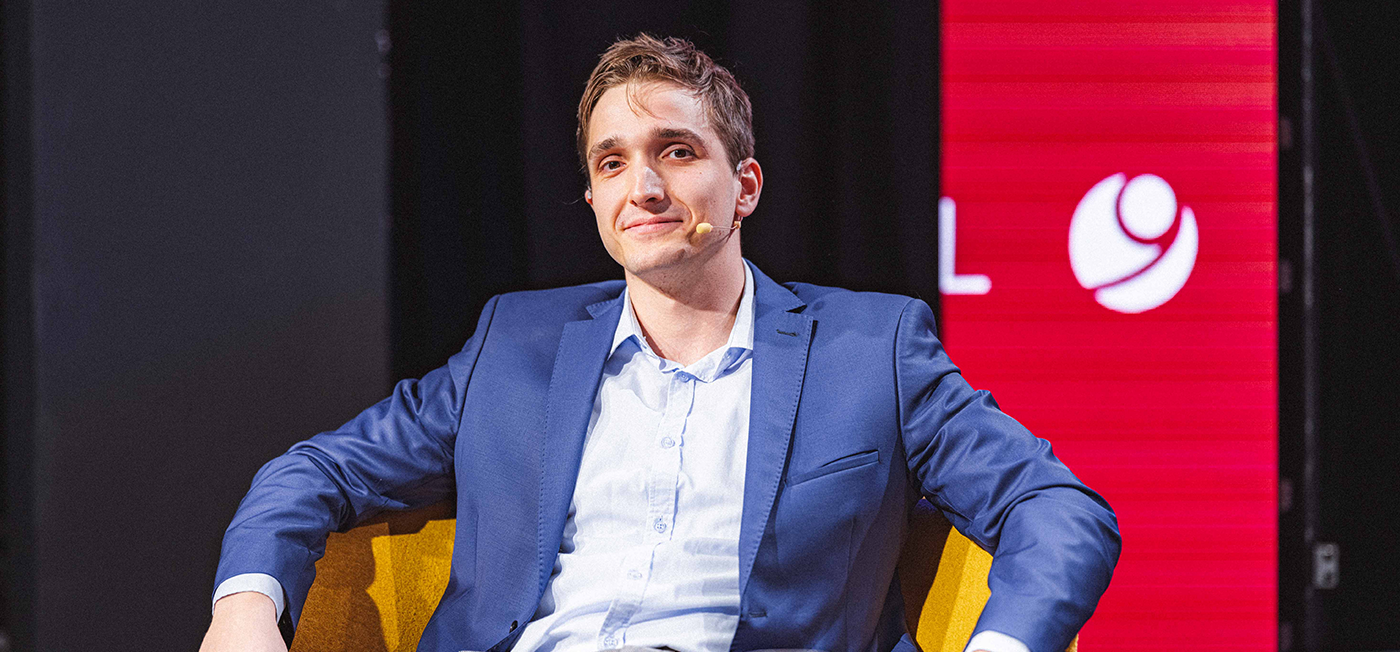
The meeting of Slovakian CI users took place in May 2024. The CI patients and professionals from Bratislava University Hospital celebrated 30 years of cochlear implantation in Slovakia. One of the experienced users on the podium, Martin Ďuriška, was not yet born at the time: “My first birthday was on March 7, 1998, my second birthday on December 10, 1999 when I was implanted,” he begins his presentation.
The project manager was born as the second child in the Ďuriška family, before newborn hearing screening was introduced in Slovakia. “Mom could compare me with my older sister. She was worried that I might not be as responsive as I should be. That's why she kept calling me: Martin, Martinko, Mati!” Sometimes the boy seemed to respond with a look or a smile, but then again not. Increasingly unsettled, the parents sought reassurance: “My father switched on the drill directly under my bed. It was so loud, probably 90 decibels, but I didn't react in any way.” A visit to the ENT specialist confirmed the urgent suspicion: their son Martin was deaf on both sides, apparently right from birth.
"My purple blanket - I still have it!"
“It was like a slap in the face for my mother,” says Martin Ďuriška, amazed at how emotionless this specialist informed his parents at the time: ”Your child is deaf and will later go to a special school for the deaf.” At the time, the doctor in private practice outside the capital did not mention the possibility of cochlear implantation. But Martin's parents did not want to simply accept this fate. “They turned to the university clinic in our capital Bratislava. I underwent several examinations there. Based on the results, the specialists there explained to my parents that I was a suitable candidate for implantation. And then they suggested the necessary steps.”
Today, the experienced CI user can no longer remember activating his system, but he can remember the appointments with the speech therapist. “And I can also remember the exercises I did at home. With mom on the purple blanket. Twice a day - 30 minutes in the morning and 30 minutes in the afternoon.” Martin's mother practiced with him in a goal-oriented and consistent manner. “Her aim was to raise me to be an independent person. For example, that I don't need any assistance, if I had to go to the authorities for some kind of documents. She was really focused on that. My grandparents and the rest of the family warned her to give me a break. But she didn't do that until I was six years old.”
More language stimuli from older friends
“Small children are not so good at speaking or language, and my parents knew that I needed a little more motivation, stimulation and encouragement to start speaking.” That's why Martin didn't start in the age-appropriate toddler group at kindergarten. “I went straight into the middle group. At the age of five, I started learning my first foreign language in kindergarten: English. My friend and I competed to see who could count faster in English. Sometimes he was faster, sometimes I was. But then I totally beat him up because I learned the number eleven,” he laughs. “My friend didn't know that yet.” Later at school, German was added as a second foreign language in the fifth grade.
Instead of attending the school for the deaf as predicted, Martin Ďuriška was enrolled at a regular elementary school in Komárno at the age of six, in a class for children with special talents. “Mummy knew that I would manage somehow.” Listening in class still required concentration, but the exercises at home became less frequent until they completely stopped. Martin Ďuriška only continued to attend the annual appointments at the clinic. At grammar school, the “little rebel”, as he describes himself, finally moved from the front row of seats to the very back of the class. The teachers knew about his hearing requirements here as well, but: “At this point, I didn't really have any problems. I was able to hear, I could here anything."
"Life without hearing - that would be a great loss for me!"
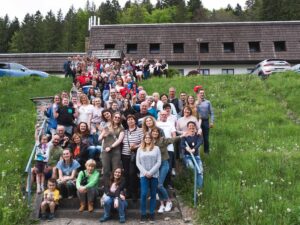
CI-users and specialists from Bratislava University Hospital celebrate 30 years of cochlear implantation in Slovakia. Among them Martin Ďuriška. ©Michal Gajdos
After being diagnosed deaf, Ďuriška's parents were told to send him to a special school. As an adult, he would probably work somewhere in the back office without hearing. Yet, all his relatives and acquaintances told him: “You're so communicative! You should definitely work with people!” As a project manager for a cyber security company, Martin Ďuriška does just that: phone calls and meetings, lots of communication throughout the working day.
Of course, he doesn't always understand everything completely. But then he asks. Like the other day at his girlfriend's family party: “There were about 15 to 20 people there, who I didn't quite understand and who were all talking loudly. I noticed that someone was laughing, but the excitement was on the other side of the room and I didn't quite understand why.” His girlfriend then explained it to him. “I was the last one to join in the laughter, but what the heck: I laughed along!”
Martin concludes his presentation in Tále with a philosophical question: is he hearing or deaf? “I am me,” he confidently tells the audience. Then he clarifies: “All my friends are hearing. That was the case at elementary school and grammar school, at university and even today. So I would basically classify myself as a hearing person.”

